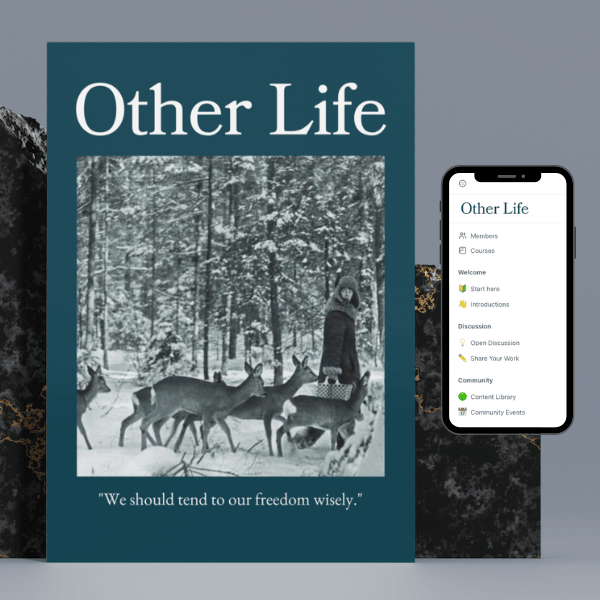
William S. Burroughs
Today I’d like to share with you some lessons discussed in this week’s episode of the podcast, Literary Outlaw: The Life and Times of William S. Burroughs. It’s based on the 1988 biography by Ted Morgan.
This week’s podcast is special: It’s the first of a new format, which reflects the rebrand and refocusing I articulated a couple weeks ago.
I’m studying the biographies of the greatest and wildest writers—to learn how they did it. Be sure to add the Other Life podcast to your favorite podcast app.
Kids are never an excuse for not taking risks and living fully. Burroughs was a terrible father, to be clear, but his life is instructive and inspiring to me because he shows how incredibly reckless one can be—with life, business, writing, and more—before anything bad starts happening to your kids! (40:08)
The importance of creating a genuine, high-intensity, private friend group with other writers. Burroughs would have been nothing without Kerouac and Ginsberg (but especially Ginsberg). Not because Ginsberg and Kerouac gained recognition first, but because they were all genuinely, mutually-inspiring and mutually-respecting friends before any of them were famous at all. They gassed each other up, propelling each other to higher levels in their work, and then after Ginsberg got famous he pulled Burroughs up socially/logistically just because he was naturally motivated to. (31:53)
Never try to impress, and have no shame about the way that you wish to live. To any random observer, at almost any time in his life, Burroughs would have seemed like a complete loser: Gross, not much to say, morose, a bit idiotic, and visibly drugged out. Even when he met famous people, he never really cared or tried to project anything, and I think this was a real key to his completely uncorrelated nature—his extreme efficacy as a causal influence on the culture, without at all being influenced by the culture. (49:54)
Listen to the whole episode on the Other Life podcast—you can find it anywhere you get your podcasts.
Subscribe on Apple Podcasts, Spotify, or whatever podcast player you prefer.

Become a Member
Our members are committed to reading better, and reading more—and writing within a community of peers. You’ll receive a special print edition of Other Life twice annually and access to our unique private community.
In the next few months, members will read, discuss, and write about:
The Republic by Plato
The City of God by Augustine
Blood Meridian by Cormac McCarthy
Neuromancer by William Gibson
And more
The seminar calendar can be found here. All are free for members; some are open to guests for a modest fee.